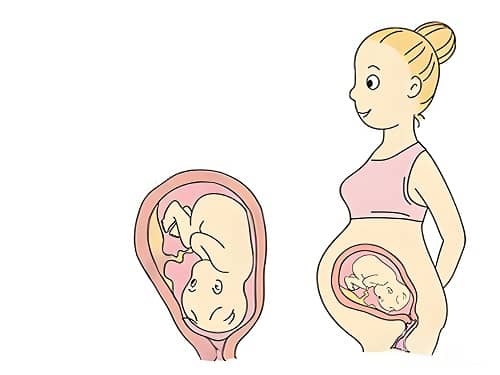During the tenth month of pregnancy (weeks 37-40), the mother-to-be is entering the final stage of pregnancy, preparing to welcome the newborn. This period is crucial for ensuring the health and safety of both mother and baby, while also focusing on the upcoming labor. Below are some key areas to pay attention to during this period:

Table of Contents
- Lifestyle Habits
- Diet and Nutrition
- Emotional and Psychological Adjustment
- Regular Prenatal Checkups
- Other Considerations
- Conclusion
1. Lifestyle Habits
- Avoid Going Out Alone:
- As labor could begin at any moment, pregnant women should avoid going out alone, traveling long distances, or spending extended periods away from home. It is recommended to stay home and remain prepared for delivery.
- Maintain Light Physical Activity:
- Light physical activity, such as walking or prenatal yoga, can be beneficial. However, excessive exertion should be avoided to conserve energy for labor.
- Get Adequate Rest:
- Ensure sufficient rest and sleep, ideally 8-9 hours a night, to build up energy for the upcoming labor. Short naps during the day can also help rejuvenate.
- Stay Clean and Hygienic:
- Personal hygiene is important during this period. Pregnant women should shower regularly and change clothes frequently. However, if there are signs of water breaking or bleeding, avoid bathing.
2. Diet and Nutrition
- Balanced Diet:
- Focus on a well-balanced diet rich in protein, vitamins, and minerals. Foods such as lean meats, fish, legumes, and a variety of fruits and vegetables should be included in daily meals.
- Key Nutrient Intake:
- Protein: Aim for 80-100 grams daily from sources like meat, fish, dairy, and eggs.
- Fat: Around 25 grams daily from oils, dairy, and nuts.
- Carbohydrates: Approximately 500 grams daily from grains and starchy vegetables.
- Dietary Fiber: 20-30 grams daily from whole grains, legumes, and fruits.
- Stay Hydrated:
- Drink plenty of water throughout the day to stay hydrated, which is especially important as labor approaches. Soups and broths can also help maintain fluid and nutrient levels.
- Avoid Stimulants:
- Refrain from consuming raw, spicy, greasy, or overly cold foods that could cause digestive discomfort or affect the baby.
3. Emotional and Psychological Adjustment
- Stay Positive:
- Anxiety and nervousness are common during the final weeks of pregnancy. Pregnant women should focus on maintaining a positive attitude and prepare mentally for childbirth by learning about the process, which can reduce fear.
- Family Support:
- The emotional support of family members plays a vital role in easing the expectant mother’s anxiety. Engaging in discussions about delivery plans can help alleviate stress.
4. Regular Prenatal Checkups
- Weekly Prenatal Visits:
- During the tenth month, it is crucial to visit the doctor weekly for prenatal examinations to monitor both the mother’s and baby’s health. Routine tests include blood pressure, weight, fundal height, fetal heart rate, and fetal positioning checks.
- Additional Assessments:
- Toward the end of the pregnancy, special assessments such as pelvic measurements and cervical evaluations may be conducted to determine the best delivery method and assess labor readiness.
5. Other Considerations
- Prepare a Hospital Bag:
- Ensure that the hospital bag is packed with essentials such as identification, insurance documents, maternity records, clothing, toiletries, and newborn supplies in case of sudden labor.
- Watch for Labor Signs:
- Pay attention to labor indicators such as contractions, bloody show, and water breaking. If any signs appear, contact the doctor or hospital and prepare to head to the delivery facility.
6. Conclusion
As the tenth month (weeks 37-40) marks the final stage of pregnancy, attention to lifestyle habits, nutrition, emotional well-being, and regular checkups is essential for a safe and healthy delivery. With proper preparation, expectant mothers can confidently approach labor and ensure the best possible outcome for both mother and baby.